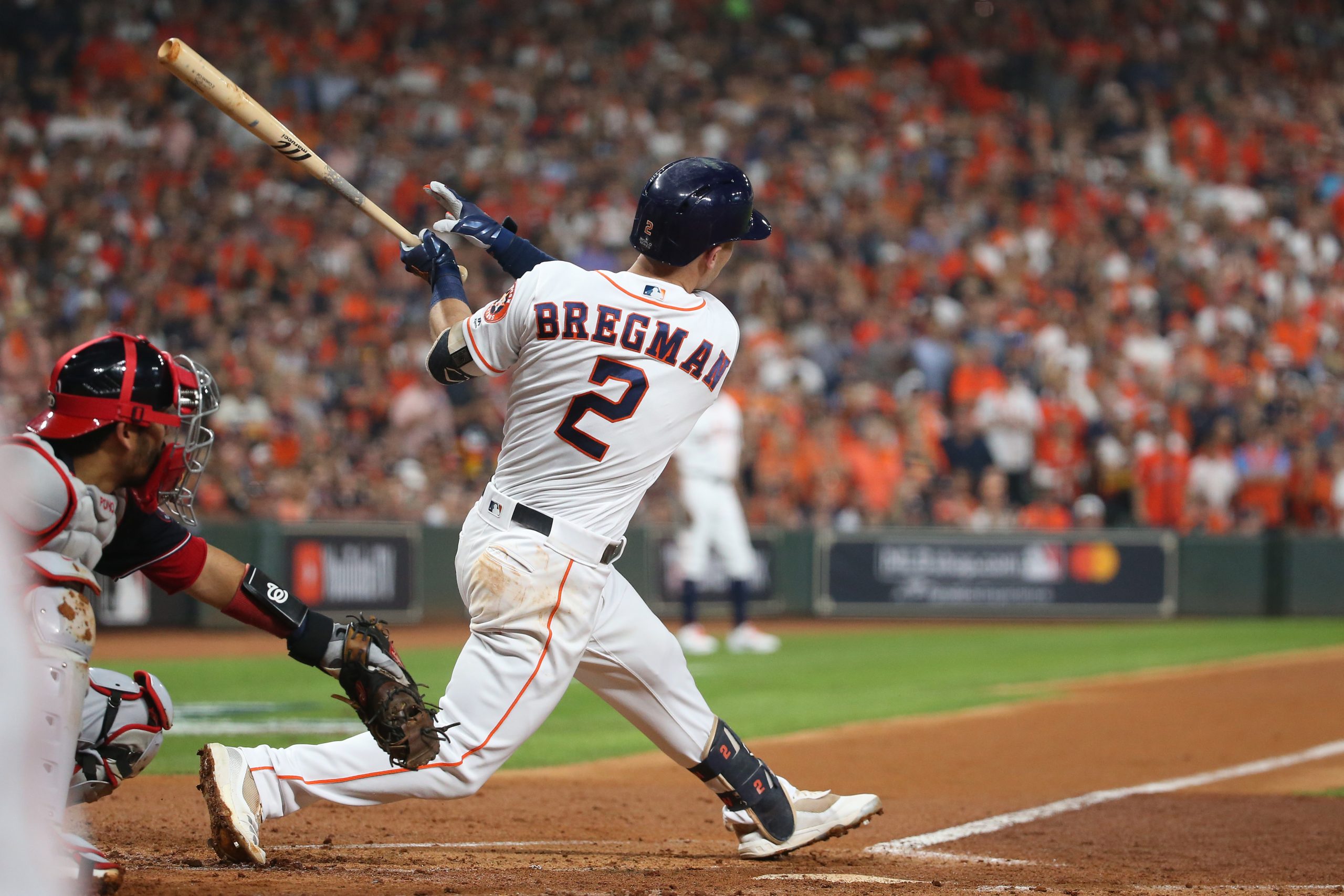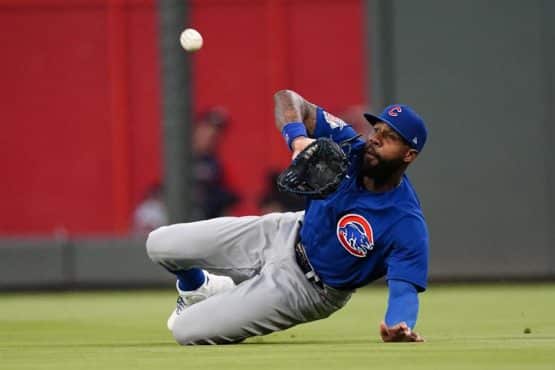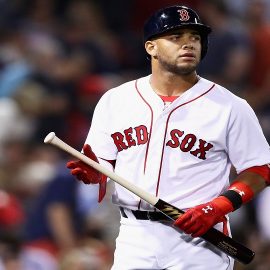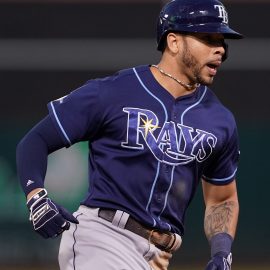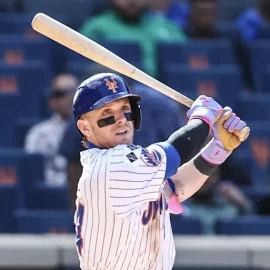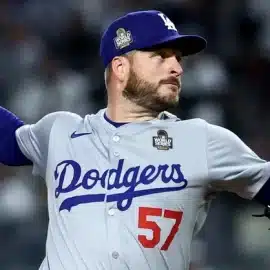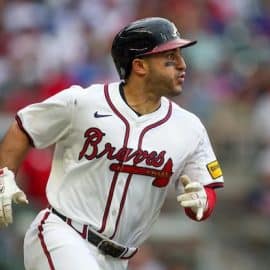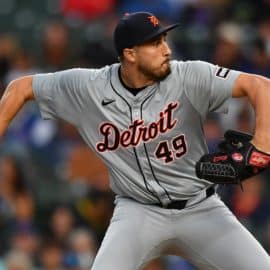NL CY Young: Jacob deGrom (NYM)
For the 2nd consecutive season, the Mets’ right-hander is finishing up the season the clear favorite for the National League Cy Young award. Although deGrom did not put together a historically dominant season in comparison to 2018, there is little argument in the favor of Scherzer or Strasburg to win this award. Outside of Won-Lost records and team success, at least. But those proved not to be enough to push deGrom out of the spotlight in 2018, and likely will not in 2019.
deGrom has 7.3 bWAR, 8.0 fWAR, and 7.8 WARP, placing him among the top NL pitchers no matter which system you follow. His 2.43 ERA was much lower than any other NL pitcher with 200+ innings, and his FIP, xFIP, and DRA backed up those elite numbers well enough (2.67, 3.11, and 2.27, respectively). deGrom also showed an ability to effectively go deep into games and still be better than his bullpen, putting up a 2.68 ERA in over 50 innings the third time through the order.
Runners Up: Max Scherzer (WAS), Stephen Strasburg (WAS), Jack Flaherty (STL)
All three of these pitchers had solid seasons, but none truly matched up to deGrom. Scherzer was neck-and-neck with his division rival in the 1st half of the season, but then an injury caused him to miss time and slowed him down. His FIP and DRA both ended up below 2.50, but with only 172 innings pitched and an ERA nearing 3.00 (maybe thanks to a high BABIP and a wOBA higher than xwOBA) it seems unlikely that he will win his 4th career Cy Young award. His teammate Stephen Strasburg also had a great season with a 6.5 bWAR, 5.7 fWAR, and a league-leading 8.3 WARP. Maybe if the CY Young award were voted on following the playoffs, Strasburg could win, but his numbers in the regular season do not compare all that favorably to deGrom’s. Flaherty is the youngest player to join this group after a breakout season. He was arguably the best pitcher in all of baseball from July 7th on, with a 0.93 ERA, 3.27 xFIP on over 6.5 innings per start. A poor start to the season will keep him from receiving first-place votes in the end.
AL Cy Young: Gerrit Cole (HOU)
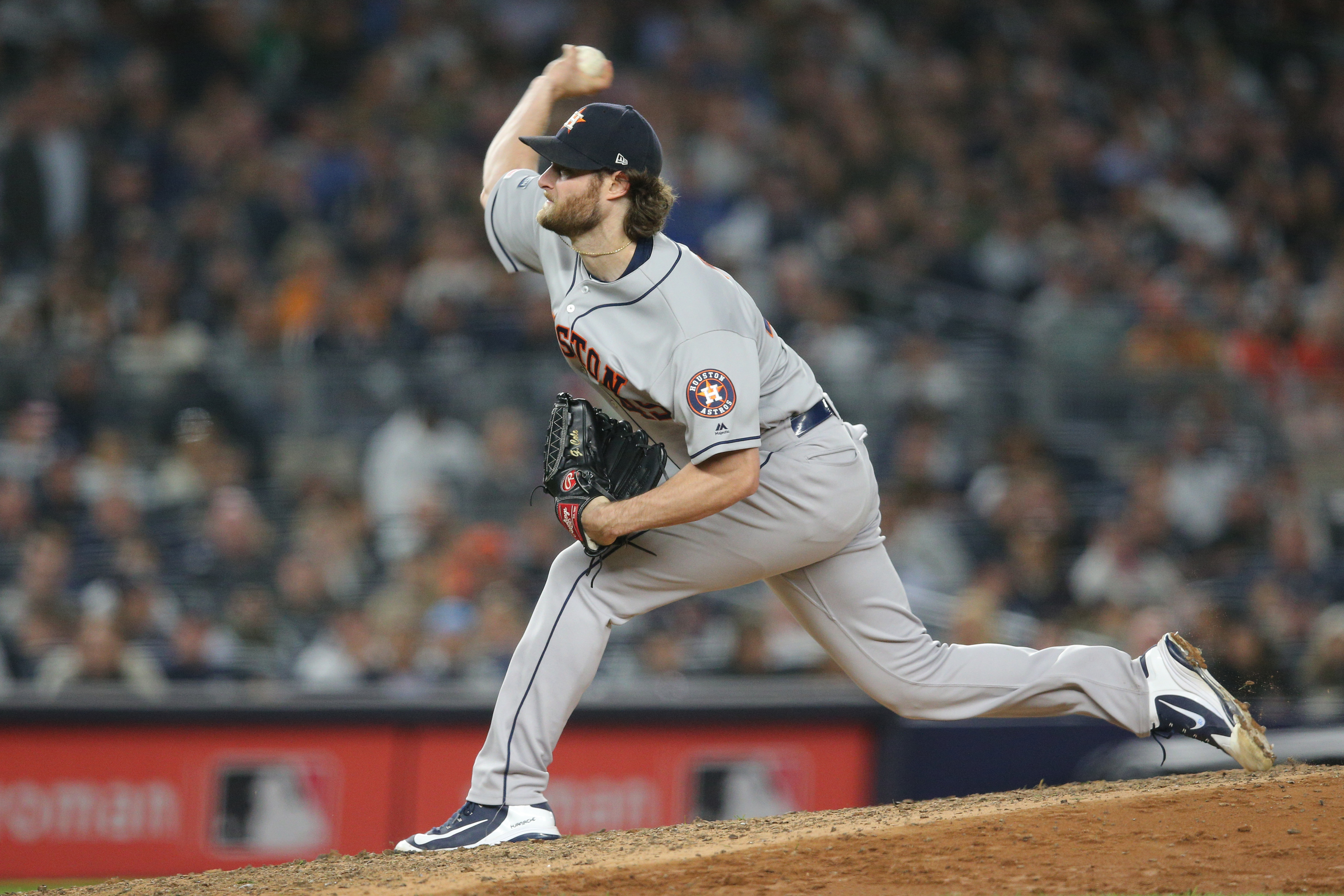
Whoever eventually wins the American League Cy Young, there will likely be some argument, but probably not from the candidates themselves. Gerrit Cole and Justin Verlander, teammates on the Astros, have both put together Cy Young-like seasons, and it is very hard to decide between the two. Ultimately, I sided with the former Pirate that is about to enter free agency. Verlander did have more help from the Houston defense with a BABIP about 60 points lower despite not generating much worse contact. Also, Cole did pitch in the homer-friendly home stadium more often than Verlander. The harder conditions combined with a lower FIP and xFIP gives Gerrit Cole the edge for this award.
Runners Up: Justin Verlander (HOU), Lance Lynn (TEX), Charlie Morton (TBR)
As mentioned previously, Verlander has just about as good as a case as Cole. Verlander has 1 more start and 10.2 more innings pitched, has a higher WPA, and his opponents faced had a higher average number of runs scored per game by about 0.1 runs. It was a fantastic season, but it looks more like his 4th 2nd-place finish in the end. Lance Lynn broke out in his first season in Texas to have a quietly amazing season. In over 200 innings, Lynn had a 3.13 FIP and 3.15 DRA. The quality of opponents, the defense behind him, role pitched in and park factors resulted in baseball-reference estimating that the average pitcher in his conditions would allow 6.25 runs per 9 innings. A 3.67 ERA and 3.85 xFIP does not sound quite as elite compared to Houston’s top 2, however. Charlie Morton, a year removed from Houston and also a former Pirate, had his career year in what may be one of his final seasons. In Tampa Bay, Morton posted a 3.05 ERA, 2.81 FIP, 2.96 DRA, and a 3.28 xFIP. Per inning, Morton was elite. However, he failed to reach 200 innings and was taken out after 2 times through the order more often than the rest of the competition, so maybe the situation he was in was why he looked the way he did.
NL Rookie of the Year: Pete Alonso (NYM)
It is typically pretty hard for a first-baseman to win awards, especially one with solid competition like the National League Rookie of the Year award this season. However, Alonso has had a historic season. As was closely followed, the “Polar Bear” broke the rookie record for homers in a season and the Mets’ franchise record for homers in a season with 53 long ones. Alonso posted a 143 wRC+, a 141 DRC+, and tied for 2nd most in Barrels in the majors with 66. His bat was obviously elite this season, and his defensive metrics helps his case too, with a 6.1 FRAA and 1.4 UZR/150. For a rookie, it was amazing to see just how good Alonso already is.
Mike Soroka of the Braves also has a case to be made for the award, and likely would win it in most other seasons, but Alonso still has the edge. While it is difficult to compare a position player and a pitcher directly, playing the entire season seems to help Alonso here. While Alonso performed about 40% better than the average hitter at the plate over 161 games, Soroka pitched 174 innings and his ERA was exactly 40% better than league average. However, his ERA was partly backed by a little bit of luck with balls finding fielders and stranding runners on base. His xFIP was 3.85, only 13% better than league average, and his SIERA even worse at 4.28. Given these metrics, Alonso seems like the better choice for this award.
Runners Up: Mike Soroka (ATL), Fernando Tatis Jr (SDP), Tommy Edman (STL)
While Soroka should get some first-place votes, it seems unlikely that he will win over the bigger star in Alonso. Nonetheless, he should finish in 2nd place after an impressive season with one of the better ERAs in the National League. Tatis and Edman are interesting names because they were arguably better per game than Alonso and Soroka, but neither played much more than half the season. Tatis Jr. started the season in the majors, but injuries cut his season short. A 150 wRC+ and 3.0 BsR as a shortstop in only 84 games is very impressive for a 20-year-old, but his 3.6 fWAR, 4.2 bWAR, and 3.4 WARP does not compare favorably. Tommy Edman is similar, even if he was a less hyped-up prospect. Edman was one of the better players in the 2nd half for the Cardinals, posting an OPS of .850 and great baserunning and defensive numbers at several positions. In a strong year for National league rookies, somebody who hasn’t proven to play at that level over an entire season like Alonso did will not win but will get him votes.
AL Rookie of the Year: Yordan Alvarez (HOU)
The Astros certainly have a good chance to have a clean sweep between MVP, Cy Young, and Rookie of the Year with the help of Yordan Alvarez. Alvarez did not all of the season, only playing 87 games. Additionally, he mostly played as the designated hitter. That combination would typically not give you a shot at winning an award, but Alvarez is still the obvious choice. Only Mike Trout had a higher wRC+ over 300 plate appearances than the left-handed slugger. Would he have kept it up over the full season? Probably not, but he only would have needed to build on his 27 homers a little bit to still be clearly the best American League rookie batter.
Alvarez has a 0.8 lead in fWAR and 0.7 lead in WARP over all other American League rookies, so even with the margin of error, it seems like Alvarez is the obvious choice here. The rest of the candidates are not particularly impressive, especially in comparison to the National League. Neither Brandon Lowe and Cavan Biggio, the other top position player candidates, played more than two-thirds of the season, so the lack of playing time does not hurt Alvarez in this situation.
Runners Up: Brandon Lowe (TBR), Cavan Biggio (TOR), John Means (BAL)
Brandon Lowe put himself in the conversation for a future role for the Rays, but not much more than that. His wRC+ was impressive at 125, and his defensive numbers at 2nd-base were very impressive (5 DRS, 4.2 UZR/150). The issue is at only 82 games, and with a high K% and unsustainable BABIP, it seems like the overall statistics do not truly represent how he played. His DRC+ is only 107, and good defensive metrics are unreliable at his sample size, so it is hard to call Brandon Lowe the rookie of the year. Looking further in the AL East, Cavan Biggio also had a solid season. He surprised by outperforming top prospect Vladimir Guerrero Jr., but he was not much more impressive than Lowe, with worse overall offensive production and only average defense at 2nd base. John Means is a little bit different, as a pitcher. While his xFIP it incredibly high at 5.48 and a SIERA of 5.02, he actually leads all AL rookies in bWAR at 4.6. Getting much more help from his defense than other pitchers on his team is part of the reason that bWAR seems to overrate his season, so he should not be taken as too serious of a candidate.
Add The Sports Daily to your Google News Feed!
